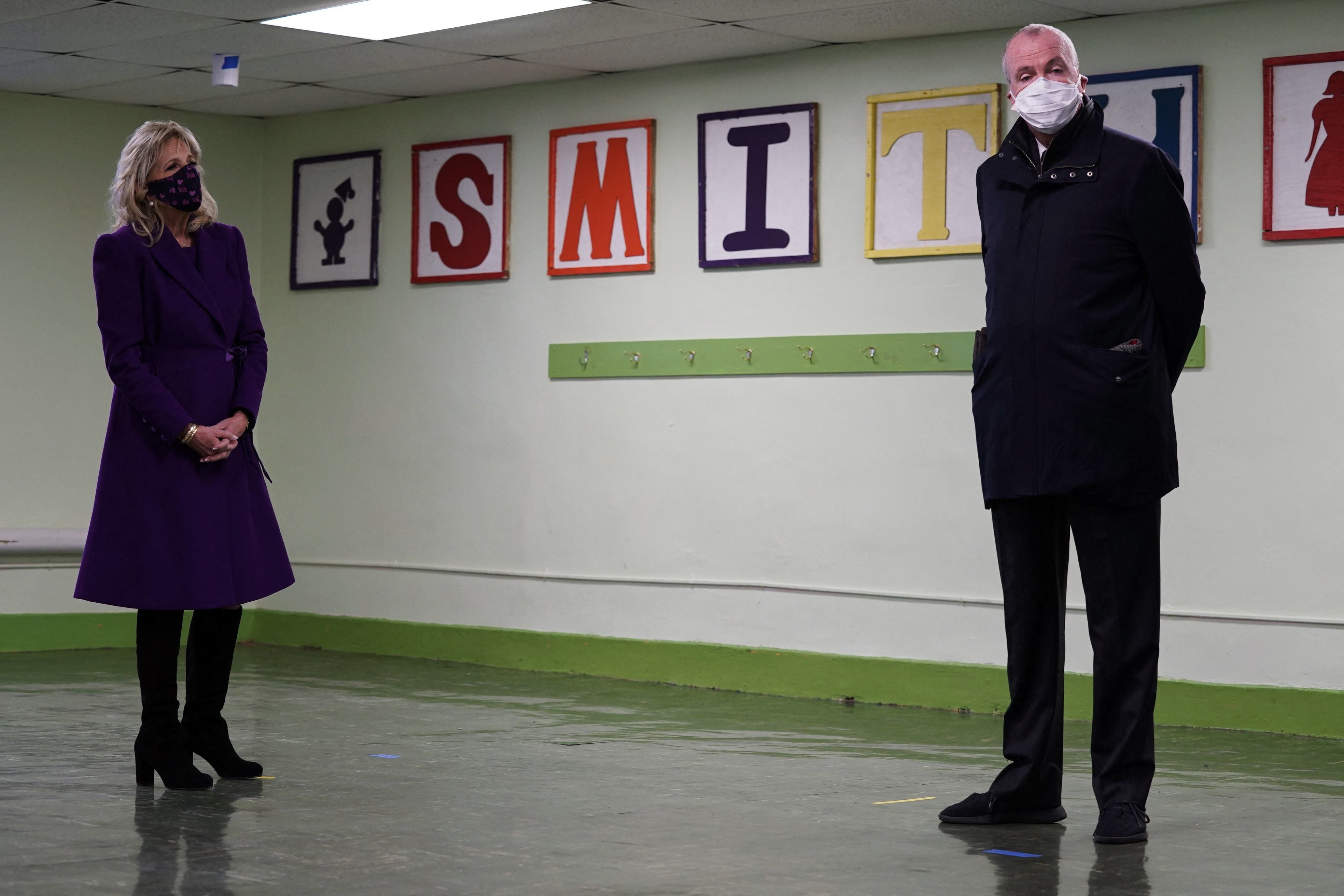New Jersey students must return to school in-person five days a week next school year and families won’t have the option to keep them at home for remote instruction, Gov. Phil Murphy announced on Monday.
“We are facing a much different world than one year ago when we had to begin planning for this school year,” Murphy said at a news conference in Trenton.
Health metrics are “trending decisively in the right direction,” as the latest data showed 3.7 million people in the state are fully vaccinated, the governor said. The state aims to have 4.7 million residents vaccinated by the end of June.
In Newark, about 26% of the population is fully vaccinated, according to state data. In Essex County, nearly 36% of the population is fully vaccinated, according to data from the Center for Disease Control and Prevention.
Last week, a day after the Pfizer-BioNTech vaccine was authorized for children ages 12-15, the state FEMA site at New Jersey Institute of Technology in Newark began taking walk-in appointments for anyone over the age of 12.
Murphy said his executive order allowing schools to offer a remote option will expire at the end of the current school year. He also said the indoor mask mandate is still in effect but did not specify what guidance on masks and social distancing would be in place for the fall.
Newark began offering in-person instruction last month, after more than a year of remote instruction. A handful of the district’s schools have allowed students to return full-time, five days a week, while most of the 65 buildings are operating under a hybrid schedule.
Murphy’s announcement “only heightens our excitement for instruction in the fall,” said Valerie Merritt, the district’s communications director. “We are looking forward to a great school year.”
Remote learning will be allowed if a localized outbreak or “other emergency” emerges, according to a news release from the governor’s office. “If buildings are open for in-person instruction, parents or guardians will not be able to opt-out of in-person instruction.”
Newark teacher’s union president John Abeigon said he was “more than fine” with the news of school returning to full-time in-person learning.
“As long as everyone continues to get vaccinated and students are encouraged to get vaccinated as well,” he said, “we’re all for it.”
The announcement follows last week’s call from Randi Weingarten, head of the American Federation of Teachers, a national teacher’s union, to reopen schools for full-time in-person instruction next school year.
Summer educational programming and camps were not part of the initial executive order and won’t be affected, the release from the governor’s office stated.







